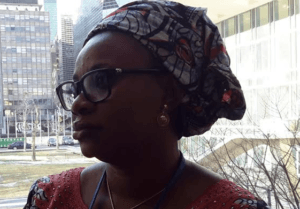Ghanaians have confidence in EC – CDD

A pre-election survey carried out by the Ghana Centre for Democratic Development (CDD-Ghana) indicates that Ghanaians have confidence in the ability of the Electoral Commission to organise free and fair polls in December.
It showed that the authority of the Commission as the official body mandated by law to announce electoral results of presidential and parliamentary elections was unquestioned.
The findings showed that an overwhelming number of voters endorsed the ballot box as the most preferred means of choosing officers with majority stating elections empower them to remove from office non-performing leaders.
Notwithstanding this optimism in the efficacy of the vote, Ghanaians believe their vote is not secret, nearly a third are skeptical about the vote being counted after the polls and a large minority believe it is very/somewhat likely that the wrong vote tally would be announced.
“Looking ahead to the 2016 polls, most Ghanaians prefer to have free and fair elections even if their preferred candidate does not emerge as winner,” Dr Edem Selormey, senior research fellow at CDD-Ghana, told journalists on Thursday.
Majority expressed optimism that the upcoming polls would be ‘completely free and fair’ or ‘free and fair with lesser problems, she said, allaying the fear that “most Ghanaians will not engage in unlawful actions if the elections does not reflect the popular will.
There is a high level of awareness about the upcoming 2016 election among the Ghanaian public as 97 per cent know the polling stations or where they would be voting.
The radio remains the main source of information for the electorate about the elections with most electorate getting their information from private radio (46 per cent), government radio (37 per cent), private TV (36 per cent) and government TV (33 per cent).
Ghanaians also rely heavily on informal sources of news such as friends, neighbours, co-workers (26 per cent), family members (22 per cent) and community meetings (17 per cent).
More than nine in 10 Ghanaians (93 per cent) claim to be registered and expressed an intention to vote (76 per cent).
“This compares favourably with 2012 where 76 per cent of Ghanaians had done same,” Dr Selormey said.
Ghanaians expressed a strong preference (79 per cent) for a completely free and fair election and are confident that the 2016 polls would be ‘completely free and fair’ or ‘free and fair with minor problems’ (77 per cent).
A solid majority believe the Electoral Commission will perform its duties as a ‘neutral body guided by law’ (63 per cent).
Ghanaian assessments of the preparedness of key state institutions implicated in the 2016 polls vary.
Eight in 10 Ghanaians perceive the Army and the Police as ‘very/somewhat’ prepared for the upcoming polls.
Ghanaians express some concerns about the electoral system. Seven in 10 Ghanaians (71 per cent) believe they enjoy vote secrecy, but a quarter of the population think otherwise.
On vote buying, most Ghanaians abhor vote buying and believe it is ‘wrong and punishable’ for a candidate to buy and for a citizen to sell vote.
But a quarter and less than one in five respectively condone vote-selling and vote-buying.
“They deem it wrong but understandable or not wrong at all,” the survey said.
Source: GNA
